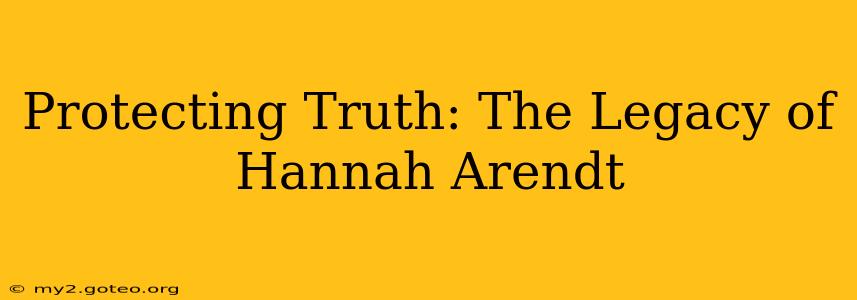Hannah Arendt, a towering figure in 20th-century political philosophy, continues to resonate deeply in our contemporary world, grappling as we are with the challenges of misinformation, authoritarianism, and the fragility of truth itself. Her profound insights into totalitarianism, the nature of evil, and the importance of public life remain remarkably relevant. This exploration delves into Arendt's enduring legacy, examining her key concepts and their ongoing significance.
What was Hannah Arendt's main contribution to political philosophy?
Arendt's main contribution lies in her unflinching examination of totalitarianism, particularly Nazism and Stalinism. Unlike many of her contemporaries who focused on the economic or psychological roots of these regimes, Arendt emphasized the political nature of their evil. She highlighted the insidious way totalitarian regimes manipulate language, create a climate of fear, and destroy the very fabric of public life, leaving individuals isolated and vulnerable. Her work The Origins of Totalitarianism remains a seminal text, providing a framework for understanding the mechanisms of totalitarian control and their devastating consequences. Beyond totalitarianism, Arendt's work significantly impacted political thought through her explorations of concepts like action, judgment, and the public sphere, all vital to a healthy democracy.
What are Hannah Arendt's most important works?
Arendt's body of work is substantial and multifaceted, but some of her most influential publications include:
- The Origins of Totalitarianism (1951): This foundational work analyzes the rise of totalitarian regimes, examining their historical roots and ideological underpinnings.
- Eichmann in Jerusalem: A Report on the Banality of Evil (1963): This controversial book explores the trial of Adolf Eichmann, highlighting the "banality of evil"—the capacity for seemingly ordinary individuals to participate in horrific acts without necessarily being driven by profound ideological convictions.
- The Human Condition (1958): This ambitious work explores the fundamental conditions of human existence, examining the interplay between labor, work, and action and their significance in shaping human experience.
- Between Past and Future (1961): This collection of essays delves into various aspects of political thought, exploring themes such as revolution, responsibility, and the nature of judgment.
What is the banality of evil?
Arendt's concept of the "banality of evil," derived from her observation of Adolf Eichmann's trial, is arguably her most debated and influential contribution. It doesn't suggest that evil is commonplace or insignificant. Instead, it points to the capacity of individuals to participate in horrific acts without necessarily possessing a deep-seated hatred or ideological fervor. Eichmann, according to Arendt, was not a monstrous figure driven by sadistic impulses but rather a bureaucrat who followed orders, thinking within a narrow and limited framework. This highlights the danger of thoughtless obedience and the importance of critical thinking and moral responsibility in preventing atrocities.
How is Hannah Arendt's work relevant today?
Arendt's work remains startlingly relevant in the 21st century. The rise of populism, the spread of misinformation, and the erosion of trust in institutions mirror some of the conditions that enabled the rise of totalitarianism. Her insights into propaganda, the manipulation of language, and the destruction of public discourse offer crucial tools for understanding and resisting contemporary forms of authoritarianism. Her emphasis on the importance of critical thinking, active citizenship, and the protection of truth remains vital in an age characterized by information overload and the constant threat of disinformation.
Why is Hannah Arendt considered an important political theorist?
Hannah Arendt's enduring impact stems from her ability to connect historical events with fundamental philosophical questions. She wasn't just a chronicler of the 20th century's horrors; she offered profound theoretical frameworks for understanding them, frameworks that continue to illuminate our present challenges. Her work compels us to grapple with fundamental questions of power, responsibility, and the conditions for a just and free society. Her intellectual courage in confronting difficult truths and her unwavering commitment to the importance of human agency make her a crucial figure for anyone seeking to understand and navigate the complexities of the contemporary world. Her legacy is a call to critical thinking, active citizenship, and the unwavering defense of truth in a world that constantly tests its boundaries.

